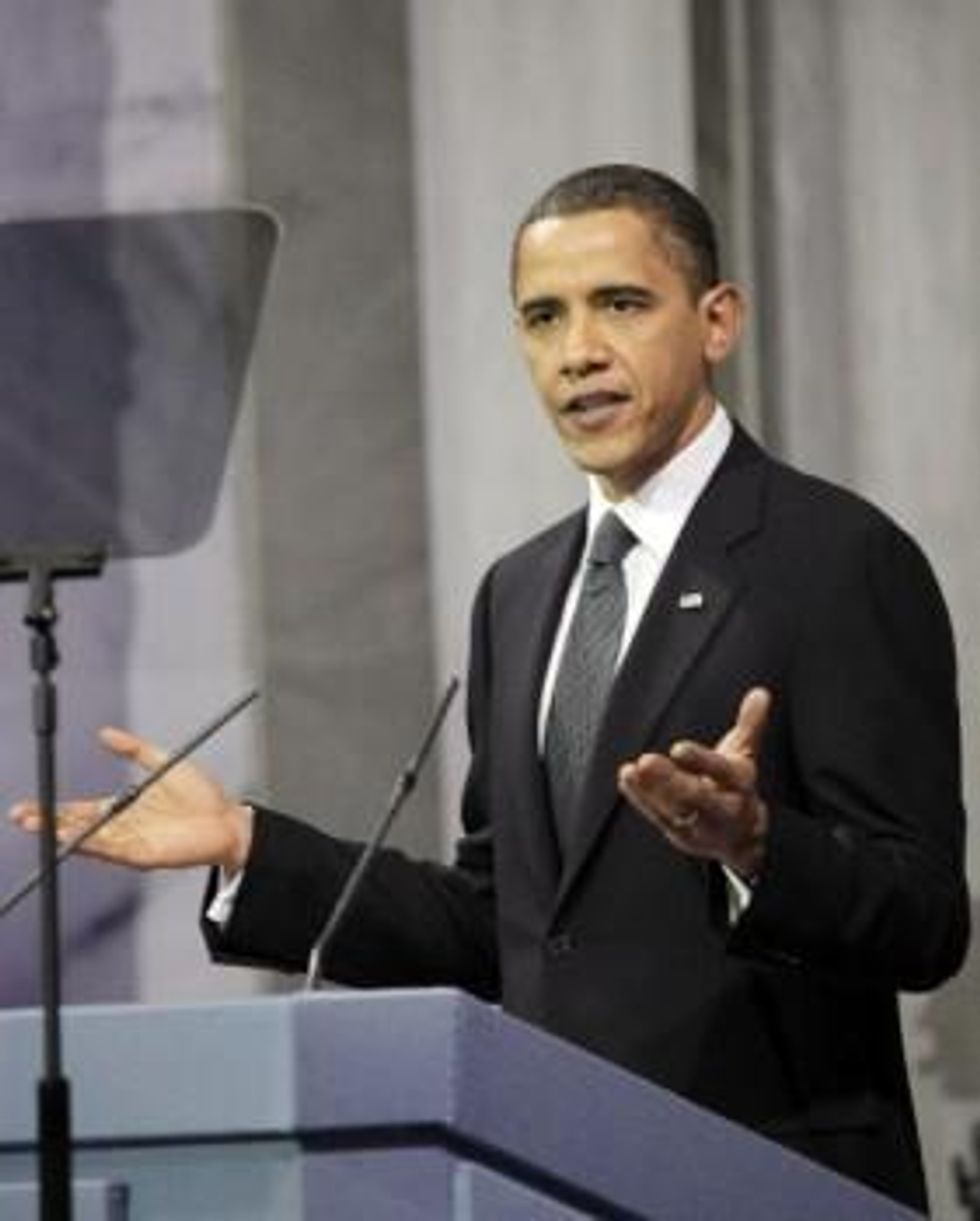Of course, it wasn't Barack Obama's fault. He didn't nominate himself for the Nobel Peace Prize back in 2009 when he was already on a distinct war trajectory in Afghanistan and Pakistan. The Nobel committee did it in what, even then, was visibly a vote for the idea that "peace" was anything but George W. Bush.
After all, the new president had run a campaign against a "stupid" war in Iraq, but for prosecuting "the right war," and by the time he was awarded the prize in October 2009, as an incipient peace president he had already escalated the war in Afghanistan and his administration was deep in a fierce debate over just how many more troops to send there in what would, by December of that year, become a "surge."
By the time the president accepted his award in March 2010 in a speech entitled "A Just and Lasting Peace" -- which might more accurately have been titled "On the Necessity of War" -- he had significantly increased troop levels in Afghanistan and similarly upped the levels of CIA personnel, private contractors, special operations forces, State Department personnel, and so on. In addition, he was already overseeing a spreading drone air campaign in the Pakistani borderlands.
Give him credit. He stood on the Nobel podium and gave a speech that, read today, looks remarkably like a rousing defense of American-style war and little short of an attack on the limited ability of nonviolence to make a real difference in a violent world. Among other things, he made clear that he wouldn't be bound in any way by the examples of Gandhi or King, trumpeted his willingness to act "unilaterally," and plunked for the necessity of war. ("I raise this point because in many countries there is a deep ambivalence about military action today, no matter the cause. At times, this is joined by a reflexive suspicion of America, the world's sole military superpower.")
Honest (and predictive) as it may have been, he did not have to go to Oslo at all. He had an honorable alternative, and there was even a precedent -- though one no American president would ever have cited -- for what he didn't do. In 1973, the Nobel Committee offered its peace prize to two men, American Secretary of State Henry Kissinger and North Vietnamese diplomat Le Duc Tho for negotiating the Paris Peace Accords. Kissinger accepted. Le Duc Tho refused, saying that "peace has not yet really been established... In these circumstances, it is impossible for me to accept the prize."
Obama did not take that path, of course, and now, his Nobel Prize largely forgotten, he will be campaigning for reelection as a successful war president, the man who launched the attack that killed Osama bin Laden, and whose administration has fed the U.S. military machine in a manner similar to that of his predecessor. At the same time, it has fiercely prosecuted and, in the case of Private First Class Bradley Manning among others, persecuted a range of American whistleblowers who have dared to reveal the real story of our eternal state of war and the war state that goes with it.
Manning, accused of passing secret U.S. military and State Department documents on to the website WikiLeaks, is now in military prison awaiting a trial whose verdict is essentially a foregone conclusion. Everyone knows that after military "justice" is done under pressure from an administration led by a president who has already publicly stated -- at a $5,000 a head fundraiser in San Francisco, no less -- that Manning "broke the law," they will throw away the keys and leave him to rot in prison till hell freezes over.
Manning is already in danger of being forgotten for an alleged act that was aimed at stopping war, an act that -- as a matter of amends -- should bring him a nomination for the Nobel Prize, if not the prize itself. Lawyer Chase Madar's latest piece, "What the Laws of War Allow," puts the wars this war president has prosecuted in perspective and he, at least, has done his best to make sure Manning will not be America's forgotten hero with his provocative, invaluable new book, The Passion of Bradley Manning (OR Books). In a half-reasonable world, it would keep a spotlight on him.



